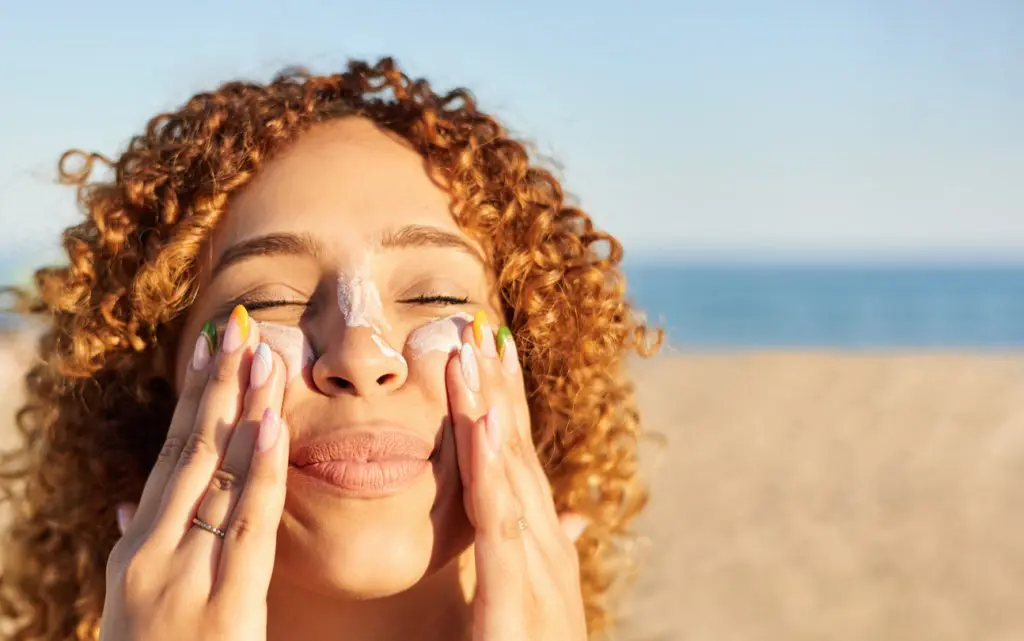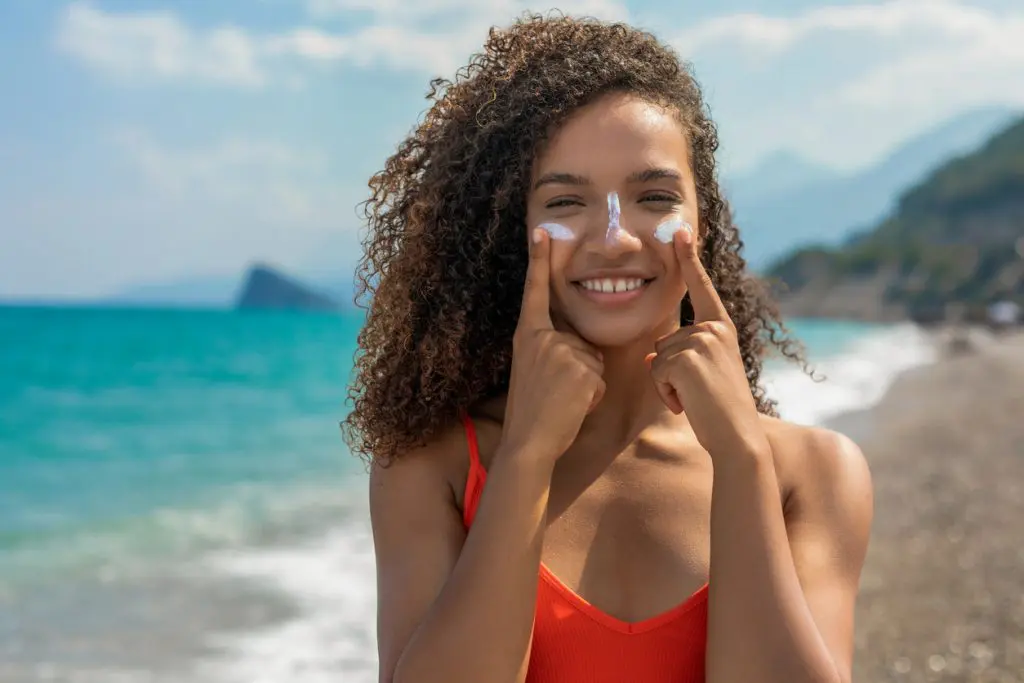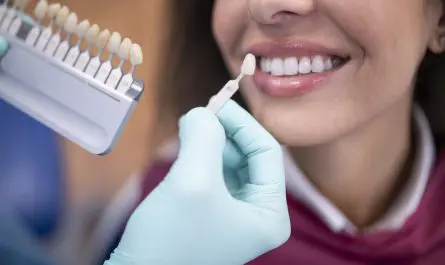Imagine stepping out of your house without any protection against the sun’s harmful rays. It might not seem like a big deal, but daily sun exposure can have serious consequences for your skin. While the sun provides essential vitamin D, its ultraviolet (UV) rays can lead to various skin issues, ranging from premature aging to skin cancer. Despite the clear risks, many people neglect the importance of sunscreen, seeing it as an occasional necessity rather than a daily essential. Understanding the benefits of sunscreen and making it a part of your routine can dramatically improve your skin’s health and appearance.
In this article, we will delve into the top seven health benefits of daily sunscreen use, demonstrating why it’s a non-negotiable part of your skincare regimen. From preventing skin cancer to maintaining an even skin texture, the advantages of regular sunscreen application are undeniable. We’ll also provide practical tips on choosing the right sunscreen for your needs and how to use it effectively. By the end, you’ll see why sunscreen is more than just a beach-day accessory; it’s a vital tool for protecting your skin every day.

Prevention of Skin Cancer
Skin cancer is the most common type of cancer in the United States, with millions of cases diagnosed annually. The primary cause of skin cancer is exposure to ultraviolet (UV) radiation from the sun. UV rays penetrate the skin and damage the DNA in skin cells, which can lead to mutations and, ultimately, cancer. Wearing sunscreen daily is a simple yet effective way to protect your skin from these harmful rays. Broad-spectrum sunscreens, which shield against both UVA and UVB rays, are particularly beneficial. They not only prevent sunburn but also reduce the risk of skin cancer, including melanoma, the deadliest form of skin cancer.
Consider the statistics: according to the American Academy of Dermatology, using sunscreen with an SPF of 15 or higher can reduce your risk of developing squamous cell carcinoma by about 40% and lower your melanoma risk by 50%. These figures highlight the significant impact that daily sunscreen use can have on your long-term health. By incorporating sunscreen into your daily routine, you are taking a proactive step to safeguard your skin against cancer. Remember, skin cancer can affect anyone, regardless of age or skin type, making sunscreen a crucial protective measure for everyone.
Key Points:
- Broad-Spectrum Protection: Opt for sunscreens that protect against both UVA and UVB rays.
- SPF Importance: Sunscreens with SPF 15 or higher significantly reduce skin cancer risk.
- Daily Application: Make sunscreen a daily habit to provide continuous protection.
- Universal Need: Skin cancer prevention is essential for all skin types and ages.
Prevention of Premature Aging
Exposure to the sun’s ultraviolet (UV) rays is one of the leading causes of premature skin aging. UV radiation accelerates the breakdown of collagen and elastin, two proteins that keep your skin firm, smooth, and youthful. Without adequate protection, prolonged sun exposure can lead to wrinkles, fine lines, age spots, and a leathery texture. Daily sunscreen use is a key strategy to combat these effects and maintain a youthful appearance. By applying a broad-spectrum sunscreen every day, you can significantly slow down the aging process and keep your skin looking fresh and vibrant.
Studies have shown that individuals who use sunscreen daily have noticeably fewer signs of aging compared to those who do not. In fact, consistent sunscreen use can reduce the appearance of existing sun damage and prevent further damage. Sunscreens with added antioxidants and moisturizing ingredients can offer additional anti-aging benefits by nourishing the skin while providing UV protection. Incorporating sunscreen into your daily skincare routine is a simple yet powerful way to preserve your skin’s youthful look and health over the long term.
Key Points:
- Collagen Protection: Prevents the breakdown of collagen and elastin, keeping skin firm and smooth.
- Reduced Wrinkles: Daily use reduces the risk of developing fine lines and wrinkles.
- Age Spot Prevention: Helps prevent the formation of age spots and pigmentation.
- Anti-Aging Ingredients: Look for sunscreens with added antioxidants and moisturizers for extra benefits.
Protection Against Sunburn

Sunburn is a common and immediate consequence of overexposure to the sun’s ultraviolet (UV) rays, leading to red, painful, and sometimes blistered skin. Beyond the discomfort, sunburn can have serious long-term effects, including an increased risk of skin cancer and premature aging. The damage from just one severe sunburn can last a lifetime, significantly increasing the risk of developing melanoma. Regular application of sunscreen is your first line of defense against sunburn. By choosing a broad-spectrum sunscreen with an SPF of at least 30, you can effectively shield your skin from both UVA and UVB rays, preventing sunburn and its associated risks.
Using sunscreen daily, even on cloudy days or during short periods of outdoor activity, ensures consistent protection. Many people mistakenly believe they only need sunscreen during beach trips or sunny days, but UV rays can penetrate through clouds and even windows. Applying sunscreen 15 minutes before going outside and reapplying every two hours—or immediately after swimming or sweating—provides continuous protection. For added convenience, consider sunscreens with water-resistant formulas or those designed for easy reapplication, such as sprays or sticks.
Key Points:
- Immediate Protection: Prevents painful and damaging sunburns.
- SPF 30 or Higher: Choose a sunscreen with at least SPF 30 for effective protection.
- Broad-Spectrum: Protects against both UVA and UVB rays.
- Regular Reapplication: Reapply every two hours or after swimming/sweating for consistent protection.
Prevention of Sun-Induced Hyperpigmentation
Hyperpigmentation, characterized by dark spots and uneven skin tone, is often caused by overexposure to the sun’s ultraviolet (UV) rays. When the skin is exposed to UV light, it produces more melanin as a defense mechanism, leading to areas of the skin becoming darker than others. This condition, commonly known as sunspots or age spots, can be challenging to treat once it occurs. However, regular use of sunscreen can prevent hyperpigmentation by protecting the skin from UV radiation, thereby maintaining an even and radiant complexion.
Daily application of broad-spectrum sunscreen not only prevents new hyperpigmentation but can also help manage existing dark spots by preventing them from getting darker. For those with sensitive or acne-prone skin, look for sunscreens labeled as “non-comedogenic” to avoid clogging pores and causing breakouts. Additionally, sunscreens with added ingredients like niacinamide and vitamin C can provide extra benefits by brightening the skin and reducing the appearance of dark spots. Incorporating sunscreen into your morning skincare routine is a proactive step towards achieving and maintaining clear, even-toned skin.
Key Points:
- Melanin Production: Sunscreen prevents the overproduction of melanin that leads to dark spots.
- Broad-Spectrum Protection: Shields skin from both UVA and UVB rays, preventing new hyperpigmentation.
- Non-Comedogenic Options: Ideal for those with sensitive or acne-prone skin.
- Additional Ingredients: Look for sunscreens with brightening agents like niacinamide and vitamin C.
Maintenance of an Even Skin Texture
Sun exposure doesn’t just affect the color of your skin; it can also impact its texture. Prolonged exposure to ultraviolet (UV) rays can cause skin to become rough, dry, and uneven. UV radiation breaks down collagen and elastin fibers in the skin, leading to a loss of firmness and elasticity. This results in a coarse, uneven skin texture that can make you look older than your years. Daily use of sunscreen helps protect these essential proteins, maintaining your skin’s smooth and even texture.
Using a broad-spectrum sunscreen as part of your skincare routine can prevent UV damage and keep your skin looking and feeling soft and smooth. Additionally, sunscreens with hydrating ingredients like hyaluronic acid and glycerin can provide moisture, further enhancing skin texture. It’s important to apply sunscreen not only to your face but to all exposed areas, including your neck, arms, and hands, to ensure an even texture across your body. For those with specific skin concerns, such as acne scars or rough patches, sunscreens formulated with soothing ingredients like aloe vera and chamomile can be particularly beneficial.
Key Points:
- Collagen Protection: Sunscreen helps maintain collagen and elastin, keeping skin firm and smooth.
- Hydrating Ingredients: Choose sunscreens with added moisturizers like hyaluronic acid for extra hydration.
- Full Coverage: Apply sunscreen to all exposed areas, not just the face, to maintain even skin texture.
- Soothing Formulas: Look for sunscreens with ingredients like aloe vera and chamomile to address specific skin concerns
Protection of Skin’s Natural Barriers
Your skin’s natural barrier, known as the stratum corneum, plays a crucial role in maintaining overall skin health. This outermost layer protects against environmental pollutants, harmful microorganisms, and moisture loss. However, ultraviolet (UV) radiation from the sun can compromise this barrier, leading to increased sensitivity, dryness, and irritation. Daily use of sunscreen helps safeguard this essential barrier by shielding your skin from damaging UV rays.
Broad-spectrum sunscreens provide comprehensive protection, ensuring that both UVA and UVB rays do not penetrate the skin and disrupt its natural defenses. Maintaining the integrity of your skin’s barrier is vital for preventing conditions like eczema, rosacea, and dermatitis, which can be exacerbated by sun exposure. Additionally, sunscreens enriched with ceramides and antioxidants can support barrier function and repair any existing damage. By incorporating sunscreen into your daily skincare routine, you are not only protecting your skin from the sun but also preserving its natural ability to protect itself.
Key Points:
- Barrier Integrity: Sunscreen prevents UV rays from compromising the skin’s natural barrier.
- Broad-Spectrum Protection: Shields against both UVA and UVB rays to maintain skin health.
- Preventive Care: Helps prevent conditions like eczema, rosacea, and dermatitis.
- Supportive Ingredients: Look for sunscreens with ceramides and antioxidants to enhance barrier function.
Reduction of Inflammation and Redness
UV radiation from the sun can cause significant inflammation and redness in the skin, leading to discomfort and potential long-term damage. Sun exposure triggers an inflammatory response as the body attempts to repair the damage caused by UV rays. This can result in erythema (redness), swelling, and even painful sunburn. Over time, chronic inflammation from repeated sun exposure can contribute to conditions like rosacea and exacerbate other inflammatory skin issues. Daily application of sunscreen is a vital step in reducing inflammation and keeping your skin calm and comfortable.
By using a broad-spectrum sunscreen, you protect your skin from both UVA and UVB rays, significantly reducing the risk of UV-induced inflammation. Sunscreens formulated with soothing ingredients such as aloe vera, chamomile, and green tea extract can provide additional relief by calming the skin and minimizing redness. For those with sensitive or reactive skin, choosing a gentle, fragrance-free sunscreen can help prevent irritation and support overall skin health. Incorporating sunscreen into your daily routine helps maintain an even skin tone and reduces the likelihood of flare-ups and discomfort.
Key Points:
- Inflammation Reduction: Prevents UV-induced inflammation and redness.
- Broad-Spectrum Protection: Shields against both UVA and UVB rays.
- Soothing Ingredients: Look for sunscreens with aloe vera, chamomile, and green tea extract.
- Gentle Formulas: Opt for fragrance-free and gentle sunscreens for sensitive skin.
How to Choose the Right Sunscreen
Choosing the right sunscreen can seem overwhelming with so many options available, but understanding key factors can simplify the process. The most important aspect to consider is the sun protection factor (SPF). An SPF of 30 or higher is recommended for daily use as it blocks about 97% of UVB rays. For comprehensive protection, opt for a broad-spectrum sunscreen that shields against both UVA and UVB rays. UVA rays can prematurely age your skin, while UVB rays can burn it. Both types contribute to the risk of skin cancer.
Different types of sunscreens cater to various needs and preferences. Physical (or mineral) sunscreens, containing zinc oxide or titanium dioxide, sit on the skin’s surface and reflect UV rays. They are ideal for sensitive skin since they are less likely to cause irritation. Chemical sunscreens, which absorb UV rays and convert them into heat, tend to be more lightweight and easier to apply without leaving a white residue. Additionally, consider your skin type when selecting a sunscreen. For oily or acne-prone skin, look for non-comedogenic formulas that won’t clog pores. For dry skin, sunscreens with moisturizing ingredients like hyaluronic acid or glycerin can provide added hydration.
Key Points:
- SPF 30 or Higher: Ensures adequate protection from UVB rays.
- Broad-Spectrum: Protects against both UVA and UVB rays.
- Physical vs. Chemical: Choose based on skin sensitivity and personal preference.
- Skin Type Consideration: Select non-comedogenic for oily skin and moisturizing for dry skin.
Tips for Effective Sunscreen Use

To maximize the effectiveness of sunscreen and protect your skin from sun damage, it’s essential to apply it correctly and consistently. Start by applying sunscreen generously to all exposed skin areas, including your face, neck, ears, and any other uncovered areas. A common mistake is not using enough sunscreen, which can significantly reduce its effectiveness. As a general guideline, aim to use about a nickel-sized amount for your face and a shot glass-sized amount for your body.
Reapplication is key to maintaining protection throughout the day, especially if you’re outdoors or sweating. Ideally, reapply sunscreen every two hours, or immediately after swimming or sweating, even if the sunscreen is labeled as water-resistant. This ensures continuous protection against harmful UV rays. Remember, sunscreen should be applied 15 minutes before going outside to allow it to fully absorb into the skin and start working effectively.
For added convenience and versatility, consider using sunscreen products that suit your lifestyle. Sprays, sticks, and lotions each have their advantages, whether you prefer quick application or targeted coverage for sensitive areas like the face. Additionally, keep in mind that sunscreen is essential year-round, not just during the summer or on sunny days. UV rays can penetrate through clouds and windows, so make sunscreen a daily habit regardless of the weather.
Key Points:
- Generous Application: Use enough sunscreen to cover all exposed areas thoroughly.
- Frequent Reapplication: Reapply every two hours and after swimming or sweating.
- Pre-Application Time: Apply sunscreen 15 minutes before going outdoors for optimal absorption.
- Choose Your Form: Select sunscreen in a form that fits your preferences and lifestyle.
By following these tips and making sunscreen a regular part of your skincare routine, you’ll effectively protect your skin from sun damage and maintain its health and appearance for years to come.
Conclusion
Incorporating sunscreen into your daily routine is not just about preventing sunburn; it’s a proactive step towards maintaining healthy, youthful skin for the long term. By protecting yourself from harmful UV rays every day, you can enjoy a multitude of benefits, from reducing the risk of skin cancer to preventing premature aging and maintaining an even skin tone. Remember, UV radiation is present year-round, even on cloudy days and indoors, making daily sunscreen use essential regardless of the weather or season.
As you embark on your sunscreen journey, consider these key takeaways:
- Health Protection: Sunscreen significantly reduces the risk of skin cancer, including deadly melanoma.
- Anti-Aging Benefits: Daily use helps prevent wrinkles, fine lines, and age spots, keeping your skin looking youthful.
- Skin Health Maintenance: It preserves your skin’s natural barriers, prevents inflammation and redness, and maintains an even texture.
- Daily Habit: Make applying sunscreen a daily habit, just like brushing your teeth, to ensure continuous protection.
Choosing the right sunscreen—whether physical or chemical, with SPF 30 or higher, and broad-spectrum protection—ensures you receive maximum benefits. By investing in quality sunscreen products and incorporating them into your skincare regimen, you’re investing in the health and beauty of your skin for years to come. Protect your skin today to enjoy healthier and more vibrant skin tomorrow and beyond.






